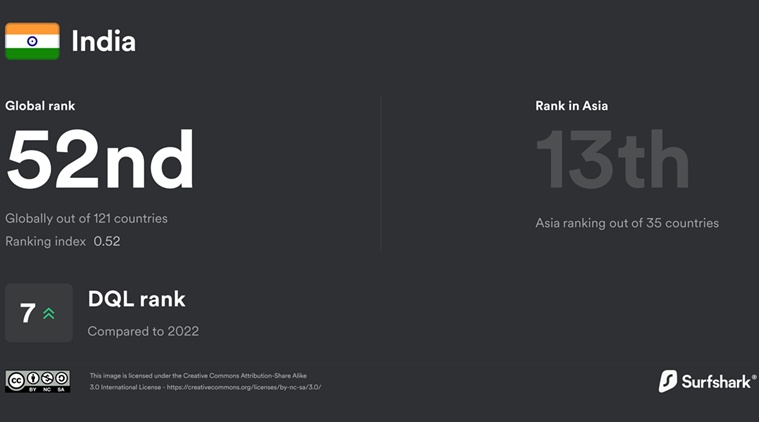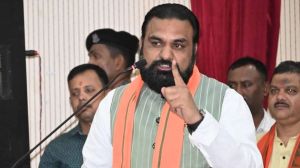India’s mobile internet speed sees 297 per cent increase: Surfshark
According to Sufshark's Digital Quality of Life survey, mobile internet speeds in India has increased by 297 per cent. Most of this might be attributed to the rapid 5G rollout in the country.
 India gained 7 places compared to last year, where it was ranked at the 59th position. (Image Source: Pixabay)
India gained 7 places compared to last year, where it was ranked at the 59th position. (Image Source: Pixabay) India ranks 52nd place in terms of digital quality of life and has seen a huge increase in mobile data speeds, according to SurfShark’s 5th annual Digital Quality of Life Index survey.
The survey annually ranks 121 countries depending on 5 factors, which include internet quality, internet affordability, e-infrastructure, e-government and e-security.
“In many nations, ‘digital quality of life’ has merged into the broader concept of overall ‘quality of life’. There’s no other way to look at it now that so many daily activities, including work, education, and leisure, are done online. That’s why it’s crucial to pinpoint the areas in which a nation’s digital quality of life thrives and where attention is needed, which is the precise purpose of the DQL Index”, says Surfshark spokesperson Gabriele Racaityte-Karasauske.
 Internet in India is more affordable than most countries. (Image Source: Surfshark)
Internet in India is more affordable than most countries. (Image Source: Surfshark)
This is seven places up compared to last year when the country held the 59th position. Surfskark says the reason behind this is due to the country’s surge in internet quality, which now ranks 16th among 121 countries, making it 36 per cent higher than the global average.
However, India is placed in the 91st position in terms of e-infrastructure. When it comes to other factors like internet affordability, e-government and e-security, it secures the 28th, 25th and 66th positions.
Talking of internet speed, the survey notes that the fixed internet speed averages 76 Mbps whereas the mobile internet speed averages 74 Mbps. The record for fastest fixed and mobile internet speeds is currently held by Singapore and Saudi Arabia, where the average speeds stand at 300 Mbps and 310 Mbps respectively.
The survey notes that while India may not have the fastest internet, the country has a high internet stability with mobile internet speeds improving by a staggering 297 per cent thanks to widespread 5G rollout whereas the fixed broadband speed has seen a modest increase of 16 per cent.
It also suggests that internet access is more affordable in the country, with Indians having to work 1 hour 48 minutes every month to be able to afford a fixed broadband line and 44 minutes 22 seconds to get access to mobile internet. However, the Digital Quality of Life survey notes that “India is unprepared to fight against cybercrime, and the country has very low data protection laws” and has low internet penetration of somewhere around 60 per cent.







